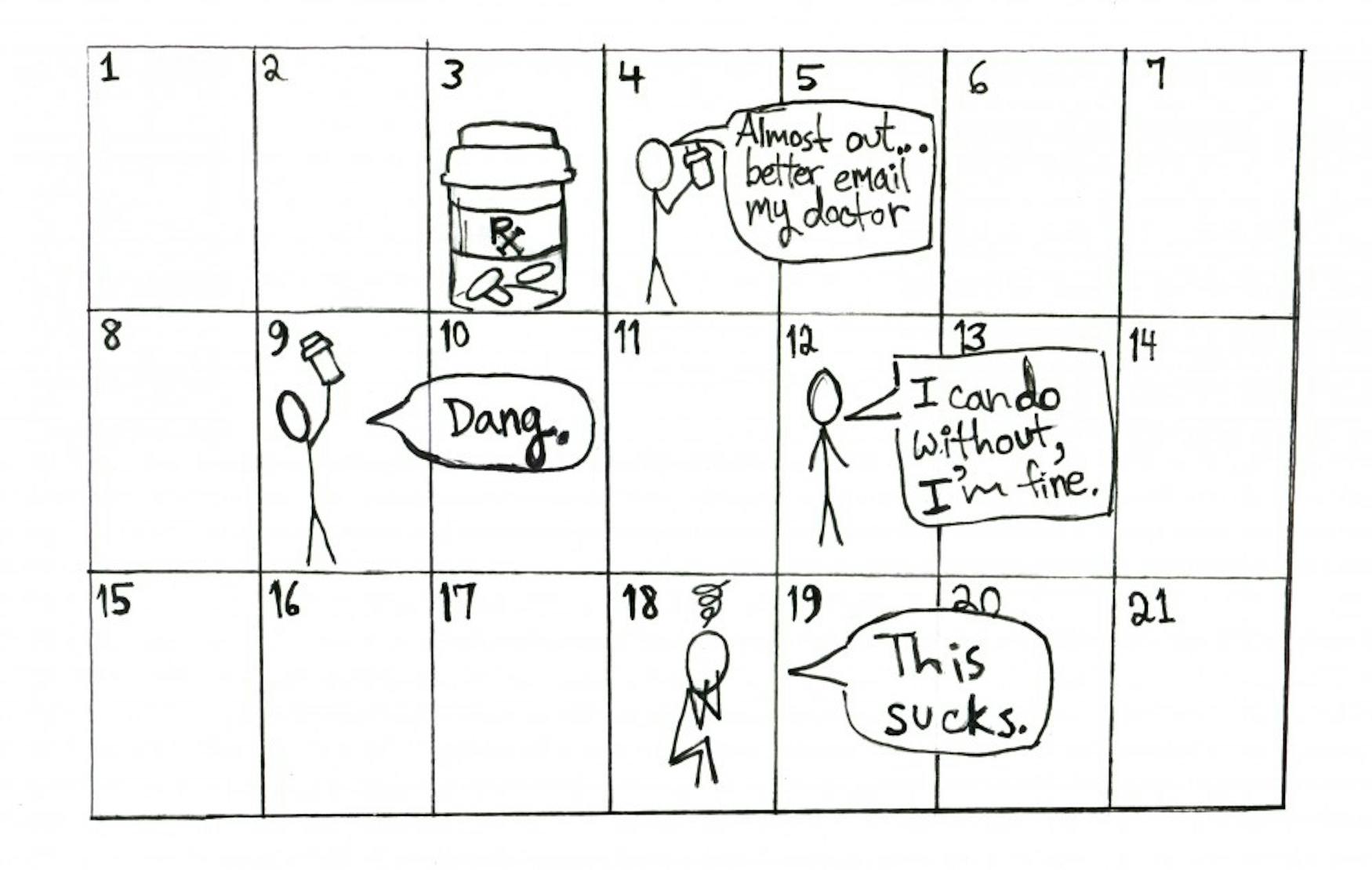Address issues in acquisition of prescription medication
Anyone who is regularly prescribed controlled substances has probably experienced many frustrations in the process of obtaining the drugs. For example, under the Controlled Substances Act, no prescription for a controlled substance in Schedule II, a class of drugs that have a high potential for abuse, may be refilled, requiring a patient to visit their prescriber for a written prescription every time they run out. In addition, according to a Sept. 17, 2013 article published in the journal Hospital Pharmacy, certain controlled substances such as Ritalin and other medications used to treat Attention Deficit Hyperactivity Disorder must be prescribed in hard-copy written form and given to the pharmacist by hand — neither electronic copies nor faxes of the prescription will permit the pharmacist to dispense the medication to the patient.
Of course, it is still possible to receive these medications if a patient has someone who can mail them the prescriptions. However, Massachusetts has a particularly frustrating law regarding Schedule II narcotics that prevents many patients from being able to receive their medications. As of Dec. 1, 2013, pharmacists in Massachusetts may only fill prescriptions for Schedule II narcotics if the medication is prescribed by a physician from Massachusetts, any bordering state or Maine, according to the Drug Enforcement Administration. This is an extreme inconvenience for anyone who does not live in one of these states, which is a fairly large number considering that over five percent of the Massachusetts population is students, according to an Oct. 12, 2015 Huffington Post article. In this case, out-of-state college students seeking Schedule II narcotics cannot receive them if their physician resides in their home state.
If these residents want to be able to receive their medications regularly, they will likely have to start seeing a physician in Massachusetts, which could strongly disrupt regular care schedules. The process of seeing a physician, whether for physical or mental health, is very stressful on its own. Many patients have to try several different physicians before they find one that fits their schedule, personal needs, financial limitations and many other factors. Having to find a Massachusetts-based physician for the sole purpose of getting necessary medications — medications that a patient has already been prescribed — creates unnecessary stress. While one has the option to continue seeing one’s out-of-state doctor at home and having an in-state physician for the purposes of obtaining medicine while in Massachusetts, seeing more than one doctor can be very expensive and patients may still feel uneasy about having to seek another physician.
The most feasible way to obtain medications prescribed by one’s out-of-state doctor is to have the doctor prescribe the medications and then ask a trusted source to mail them, which is actually illegal. Even if patients choose to disobey this rule, it presents many challenges both to the patients themselves and to the sources who are mailing the medication. For one, having to mail medication costs money. If a patient takes their medication regularly, the sender or the patient is required to pay to mail medication several times a year — especially since patients can only obtain one prescription at a time. It is also possible that patients will forget to check how much of their medication is remaining and therefore run out before more can be sent. This can result in patients missing doses of medications they need, which can have numerous adverse effects on their health. Furthermore, there may be an emergency situation during which a patient needs their medication as soon as possible and is forced to choose between pricey overnight shipping and going without. It is unfair to those seeking medications that they may be required to spend hundreds of dollars per year on having their medications sent to them in addition to the money they already spend on the medicine itself and the doctors who prescribe it.
Mailing medication presents several other issues as well. There is always a chance that the medication can get lost in the mail or that someone may steal it. Most importantly, some patients may not have a trusted source who could mail them the medication. Unfortunately, patients may be uncomfortable expressing to their peers, or even their family, that they are seeing a doctor or taking medication and therefore may not have someone to mail them the medication. Regardless, no patient should be obligated to tell anyone except their prescribing physician that they are taking medication and the reason they are taking it.
There is no clear solution to this problem. In fact, even after I did some research, the justification for this law is unclear. My most feasible guess is that it is easier for drug abusers to abuse these substances if they do not have an in-state trusted source who prescribes them. Someone with substance abuse issues could possibly obtain a “prescription” from an out-of-state source and claim it is from a doctor, and pharmacies might not have a way to check the legitimacy of the prescription when they do not have access to out-of-state medical records. While this is certainly a problem, it puts an unnecessary burden of stress on those who actually do need those medications. It is unfair for those who need medication for reasons that are already burdensome, who have to spend money on medications and providers and who may already have to deal with the stigma of taking medication, to have to spend more time, money and mental energy in order to make sure they receive their prescription medications at the appropriate times. While this rule cannot be simply overridden, I genuinely hope that Massachusetts will consider reforming it and I believe that they can figure out methods to prevent people with substance abuse problems from obtaining narcotics while also not making it harder for those who actually do need the medications to obtain them.



Please note All comments are eligible for publication in The Justice.